|
ID |
Nickname |
Country / City |
Languages |
Taxonomies |
Comment |
Project / Group |
Map |
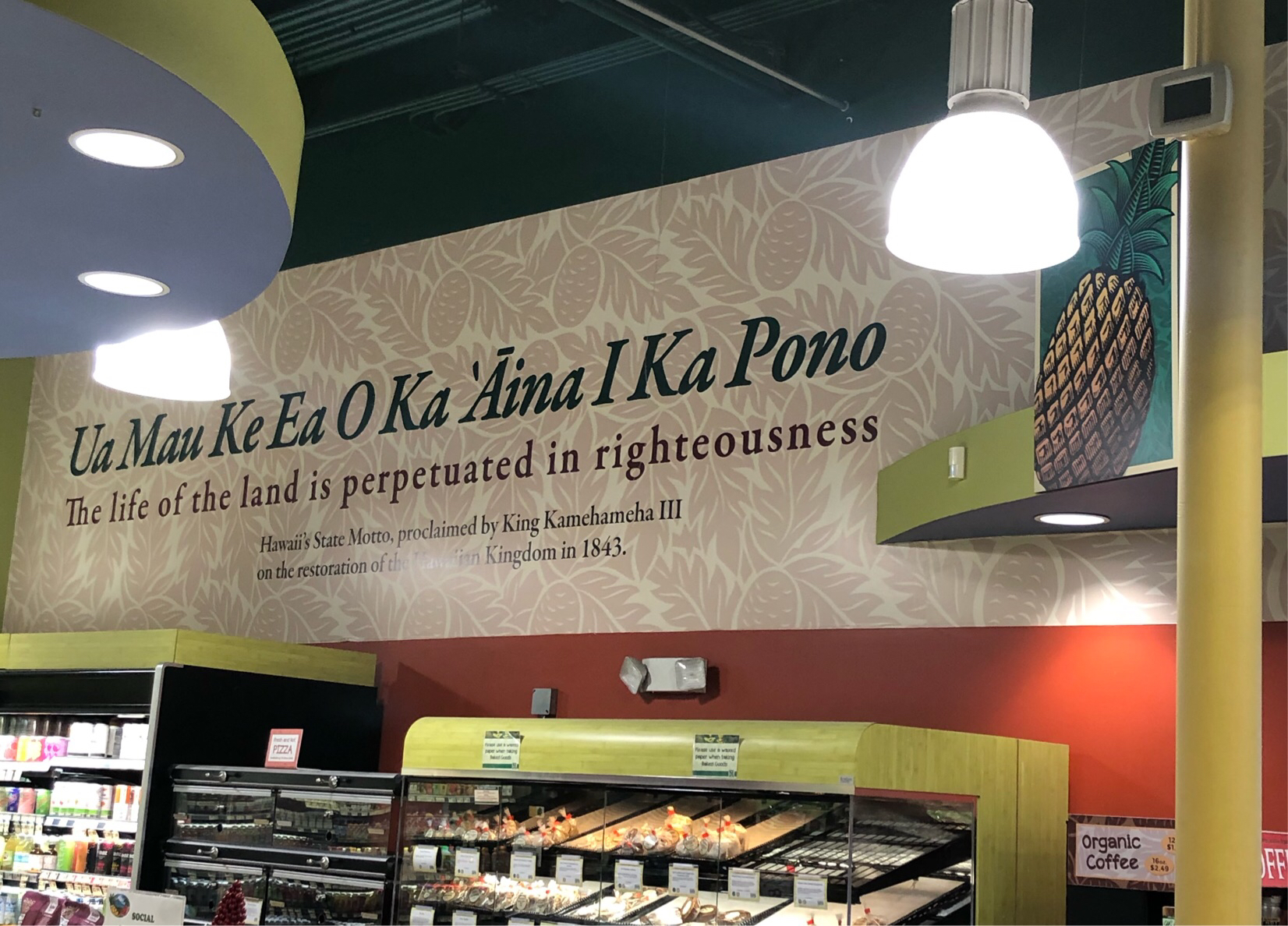
|
47233
|
|
United States
Kapolei
|
|
|
SM
|
Multilingual Hawaiʻi
|
|

|
47234
|
|
United States
Kapolei
|
|
|
This photo was taken at the Down to Earth grocery store in Kapolei. It says the state motto and it’s common English translation, which both have many interpretations. Many interpret the phrase as advocating for sovereignty. The domain is retail, so the company may be trying to brand themself as a positive contribution to Hawaii. SM
|
Multilingual Hawaiʻi
|
|

|
47235
|
|
United States
Kapolei
|
|
|
This is a sign for Ili’ili Farms displayed in the produce section of Down to Earth. Signs representing the local farms that Down to Earth sources produce from are displayed throughout the section. The purpose could be to promote the farm, or to help shoppers become more conscious of where their produce comes from. The use of these signs brings awareness to local farmers and reminds customers to shop local. SM
|
Multilingual Hawaiʻi
|
|

|
47238
|
|
United States
Kapolei
|
|
|
This photo was taken in the produce section of Down to Earth’s Kapolei location. The sign advertises Small Kine Farms, a local farm that Down to Earth sources produce from. The use of Pidgin suggest that Small Kine Farms is local and a small business, which would please consumers who try to shop sustainably. SM
|
Multilingual Hawaiʻi
|
|

|
47240
|
|
United States
Kapolei
|
|
|
This photo was taken in Down to Earth’s Kapolei location, displaying the product “Shaka Tea.” The use of Pidgin here might signify that the brand is locally owned, which might motivate sustainability conscious consumers to buy. SM
|
Multilingual Hawaiʻi
|
|
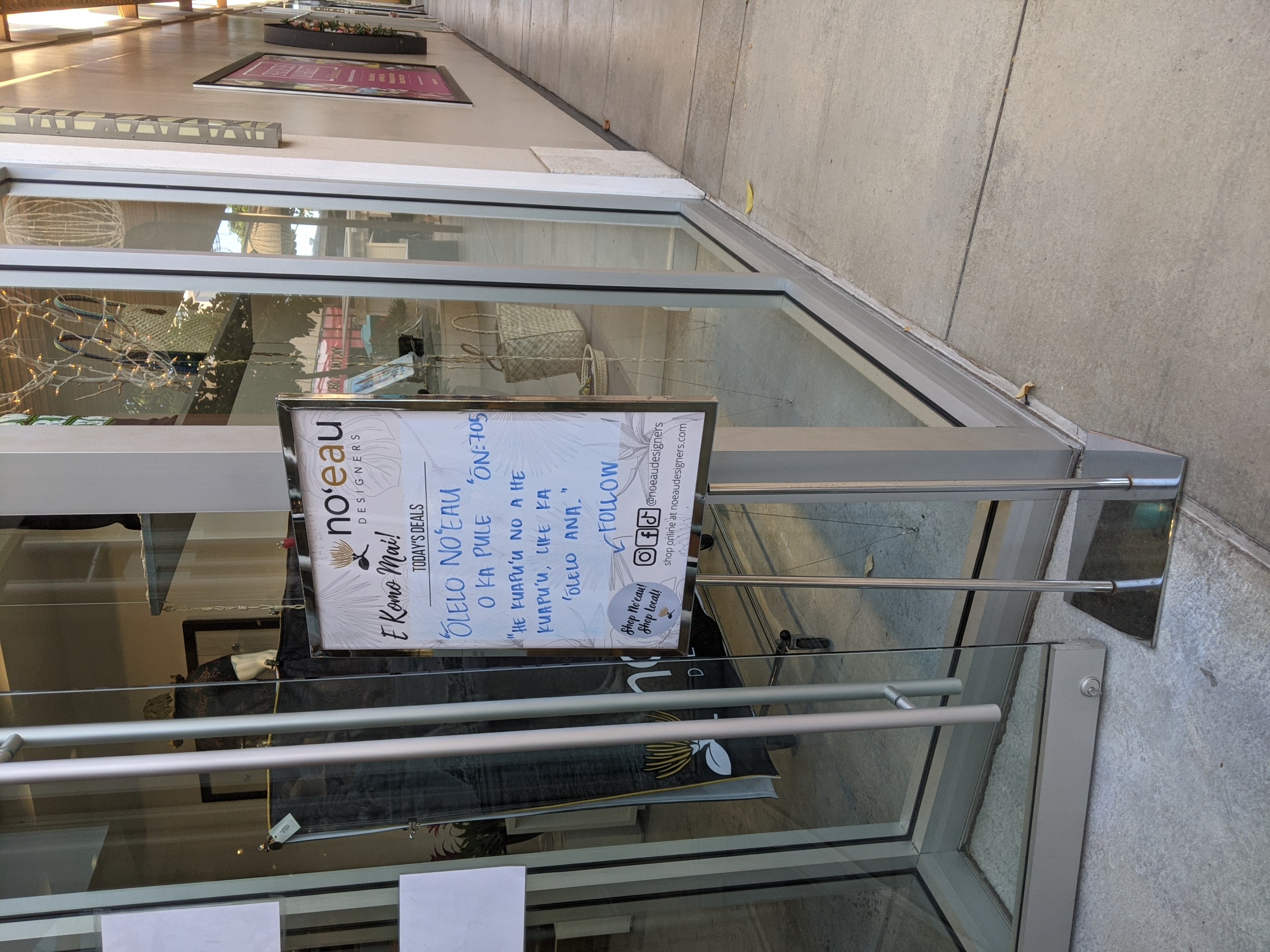
|
38848
|
|
United States
Kapolei
|
|
|
—
|
Multilingual Hawaiʻi
|
|
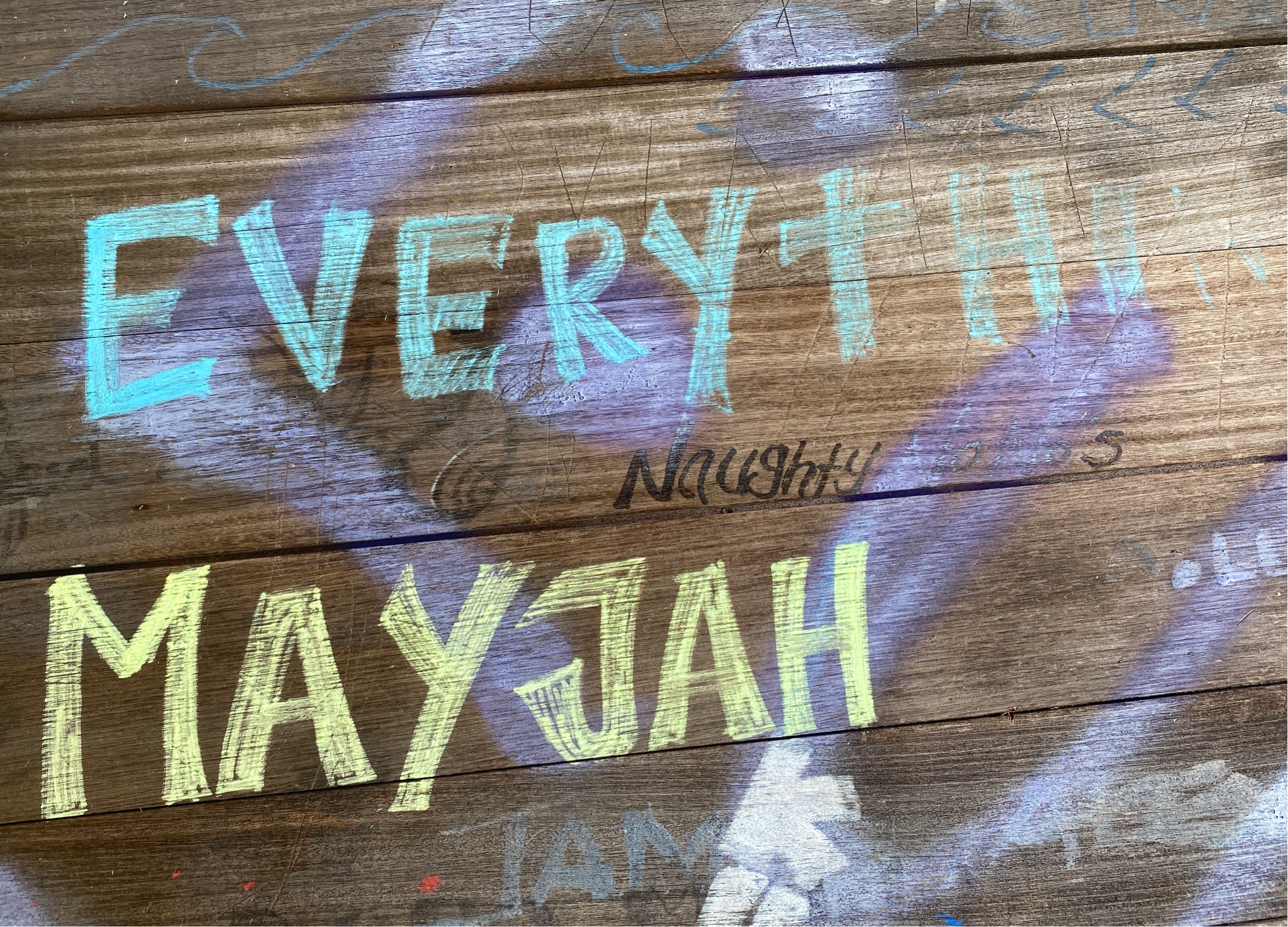
|
51319
|
|
United States
Kapaʻa
|
|
|
Graffiti in chalk behind a map of the ke ala hele makalae path in Kapaʻa. The graffiti says “everythin mayjah”
|
Multilingual Hawaiʻi
|
|
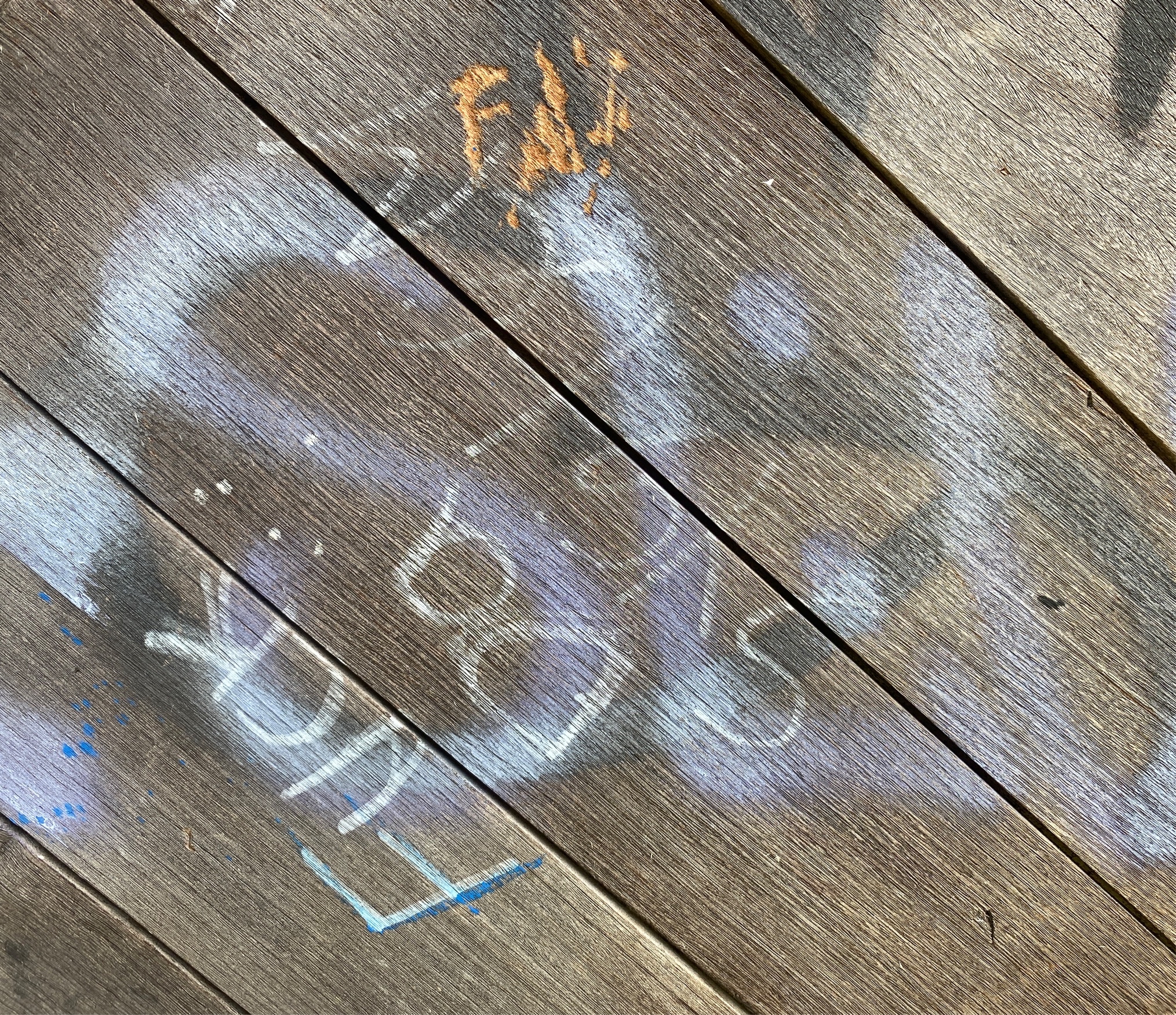
|
51320
|
|
United States
Kapaʻa
|
|
|
This graffiti says “fuck da system” as some sort of transgressive political message
|
Multilingual Hawaiʻi
|
|
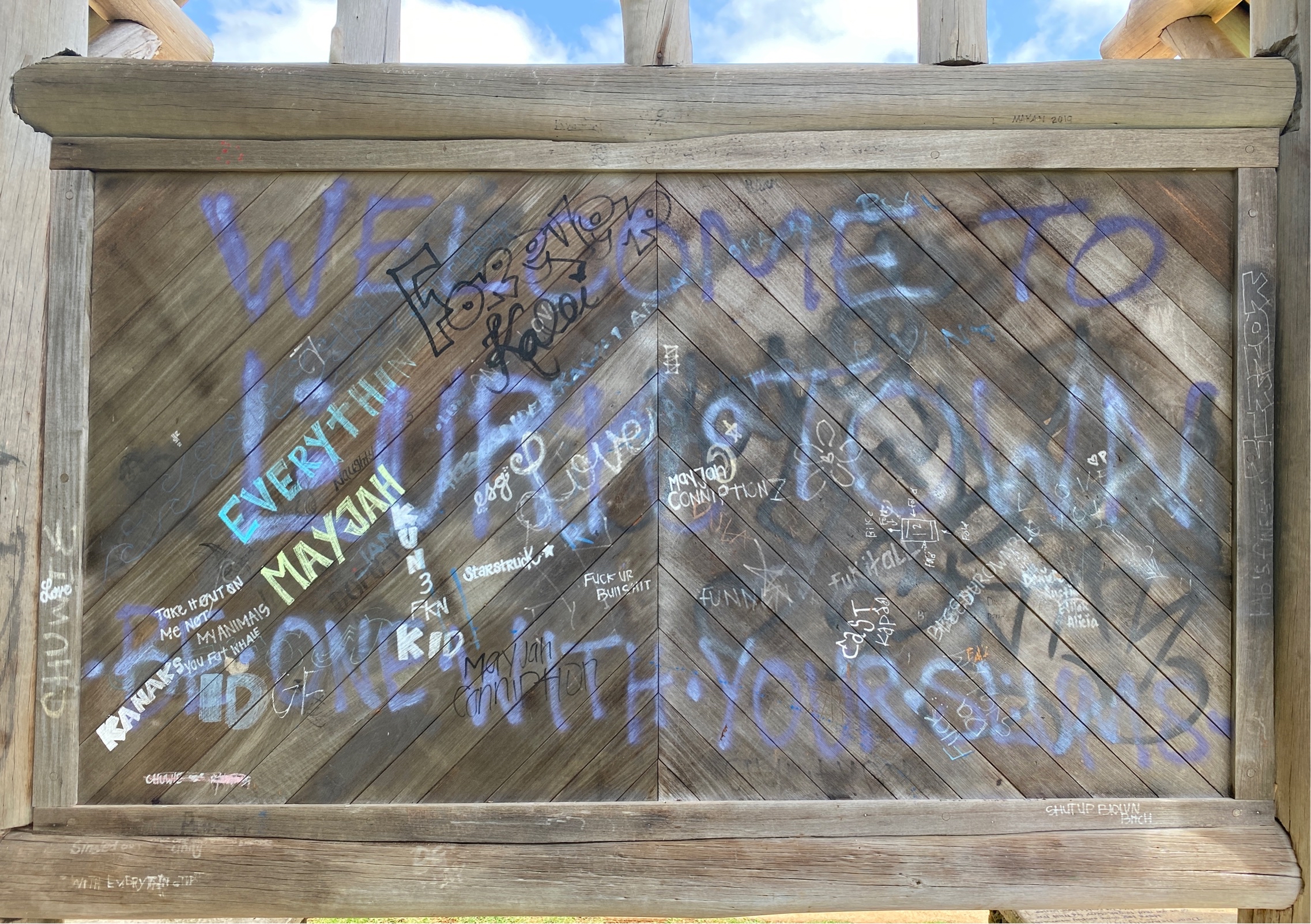
|
51321
|
|
United States
Kapaʻa
|
|
|
Lots of graffiti on the back of this informational sign in English, pidgin, and Hawaiian.
|
Multilingual Hawaiʻi
|
|
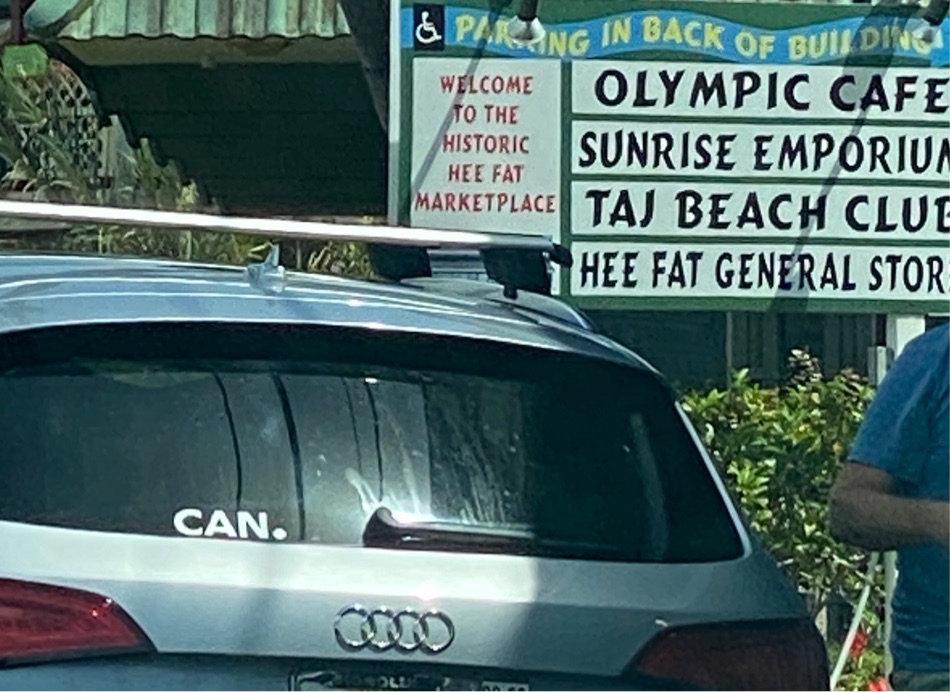
|
51322
|
|
United States
Kapaʻa
|
|
|
The sticker on this car parked in the side of the road says “can,” which is most likely from the phrase “if can, can; if no can, no can”. It is not referring to a soda can, but to possibility.
|
Multilingual Hawaiʻi
|
|
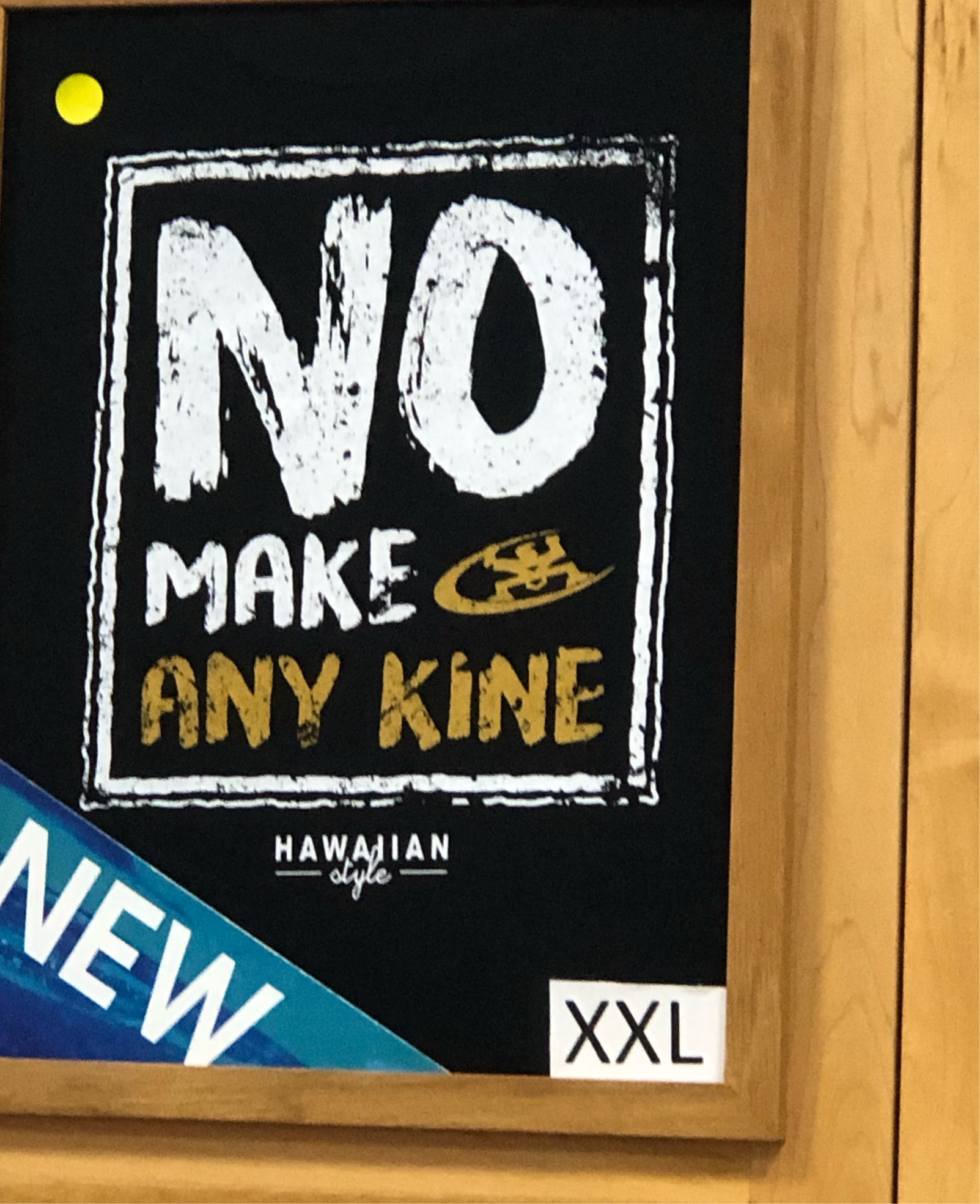
|
47122
|
|
United States
Kaneohe
|
|
|
SU: Check Up #3
- What languages are used on the sign?:
The languages that are used on the sign are Hawai’i Creole or Pidgin and English.
- How are the languages presented?:
The Pidgin and English are presented in big and bolded white and gold letters.
- Who is the audience?:
The audience is for the general public, but would probably be more directed to the locals.
- What is the domain?:
The domain is on an example card for a T-shirt in the T&C store at Windward mall.
- What is the sign telling people?:
The phrase “no make any kine” means don’t do things any type of way, have an intention behind whatever you’re doing.
- Why is Pidgin/Hawaiian being used here?:
Pidgin is being used here because it is an entertaining way to make a shirt and also because it is appropriate since we live on an island that consists of people who speak Pidgin.
|
Multilingual Hawaiʻi
|
|

|
47135
|
|
United States
Kaneohe
|
|
|
SU: Check Up #3
- What languages are used on the sign?:
The languages that are used on the sign are Hawai’i Creole or Pidgin and English.
- How is the language presented?:
The Pidgin is presented in skinny, yellow letters and the English is presented in smaller letters in a variety of colors that are placed in different areas of the photo.
- Who is the audience?:
The audience is the general public, but would probably be more directed towards locals.
- What is the domain?:
The domain is on an example card for a T-shirt in the T&C store at Windward Mall.
- What is the sign telling people?:
The phrase “kanak attack” is the feeling of intense laziness you get from eating too much. The plate shown in the photo of the Katsu chicken, Mac salad, 2 scoops of rice, meat with soy sauce and the Hawaiian Style drink is a very popular plate on the island and normally after eating this big of a meal people feel so tired and lethargic they they just want to knock out. Which is why the shirt says “Home of the kanak attack”.
- Why is Pidgin/Hawaiian being used here?:
Pidgin is being used here because it is an entertaining way to make a shirt. By wearing this shirt, it would show that you’re a proud local since Pidgin is like a signature in Hawai’i and so is the food shown.
|
Multilingual Hawaiʻi
|
|

|
47151
|
|
United States
Kaneohe
|
|
|
KA : Kakimochi is a local term for fried "kaki" rice balls "mochi". In Japan it's called Arare. Here, the choice to use the local term instead of the Japanese one is due to its familiarity to most locals. Kakimochi is classic and well loved. the domain is retail/sales.
|
Multilingual Hawaiʻi
|
|

|
47152
|
|
United States
Kaneohe
|
|
|
KA : Hapa is Hawaiian meaning half. Its use here is as a brand name, perhaps because the makers of the product are hapa perhaps because that's their name. Whatever the case, using a Hawaiian word for your brand makes it more appealing to locals who prefer to support local products. Domain is retail.
|
Multilingual Hawaiʻi
|
|

|
47153
|
|
United States
Kaneohe
|
|
|
KA : Meli means bee in Hawaiian. The choice to use meli instead of bee was probably to appeal to local buyers while still describing the product. Domain is retail.
|
Multilingual Hawaiʻi
|
|

|
47154
|
|
United States
Kaneohe
|
|
|
KA : Ku'ia is some kind of obstacle or to encounter an obstacles. As such I'm a little confused as to why one would use it as their brand name, I can only assume that it's their name. Despite all that though, the Hawaiian will still appeal to local customers. Domain is retail.
|
Multilingual Hawaiʻi
|
|
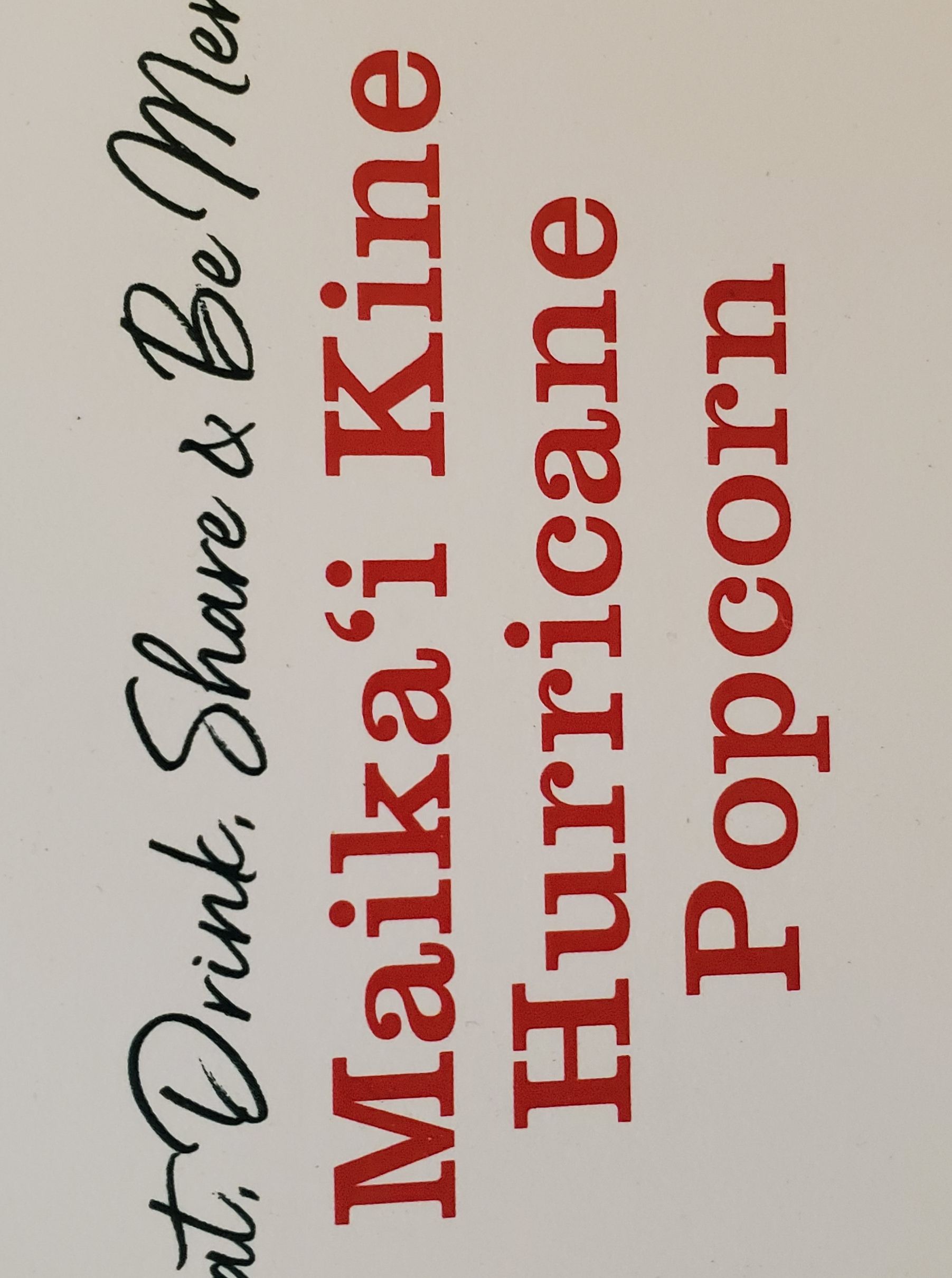
|
47155
|
|
United States
Kaneohe
|
|
|
KA : The pidgin here is "maika'i kine", meaning the good kind of popcorn. It i.plies to local buyers that this is a popcorn to be trusted because they're advertising in pidgin. Domain is retail.
|
Multilingual Hawaiʻi
|
|
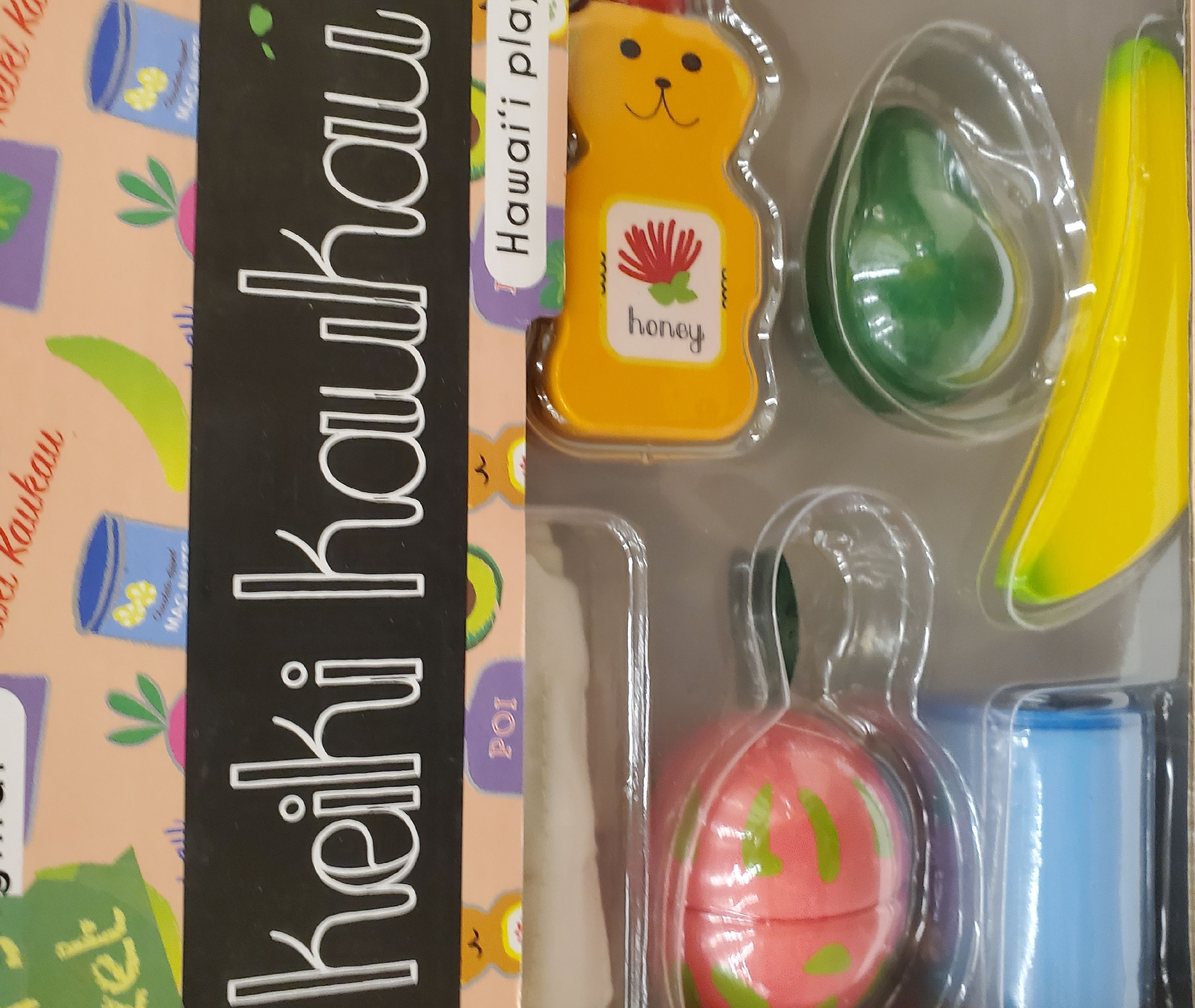
|
47156
|
|
United States
Kaneohe
|
|
|
KA : This could probably serve as either Hawaiian or pidgin, but I'm choosing pidgin. "keiki kaukau" means kid food. Which is what the box is full of, toys for children in the form of local foods. My guess is that someone thought it was adorable, because it is. Domain is retail.
|
Multilingual Hawaiʻi
|
|
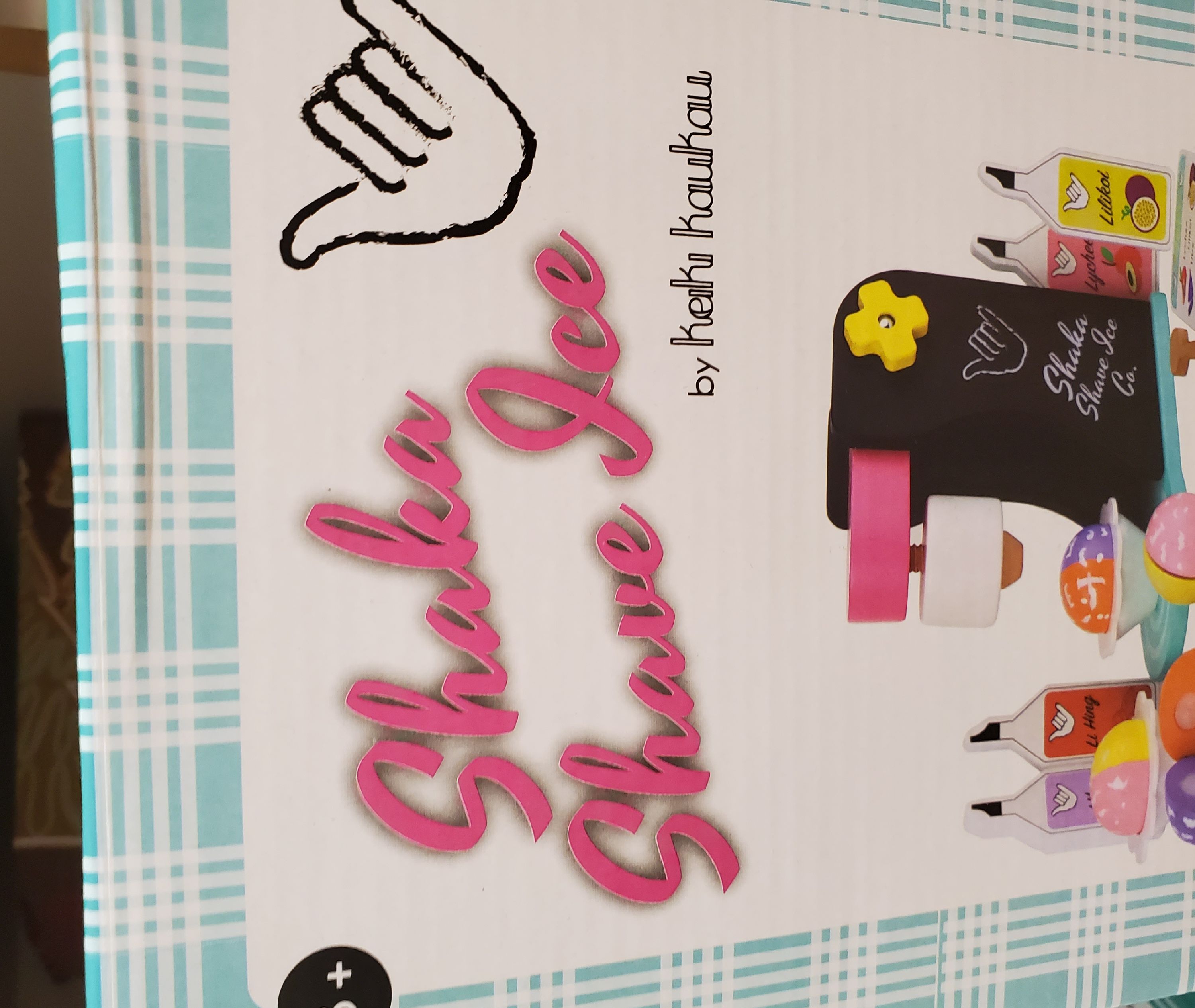
|
47157
|
|
United States
Kaneohe
|
|
|
KA : This is a dubious use of pidgin in my opinion. Usually Shaka Shaka is used ti appeal to tourists, not locals. But the product was in a local store. Nonetheless, tourists do love anything seemingly local but not too local and this fits the bill. Domain retail.
|
Multilingual Hawaiʻi
|
|
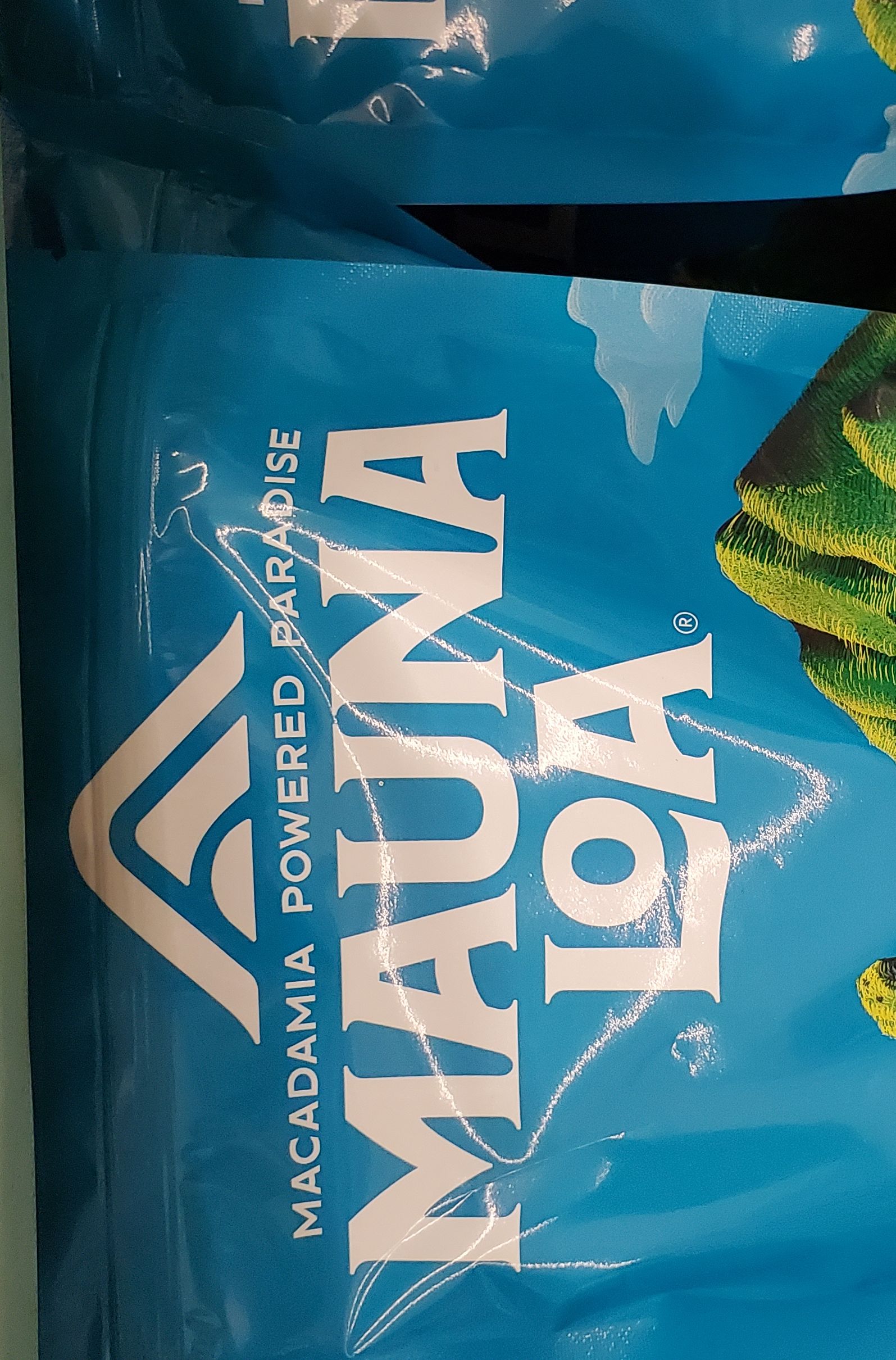
|
47158
|
|
United States
Kaneohe
|
|
|
KA : Mauna Loa is a mountain on the Big Island. It means "vast mountain" because of how big the mountain is. This is a classic brand who grow macadamia nuts there, they're obviously local and that's why people buy from them. Domain retail.
|
Multilingual Hawaiʻi
|
|